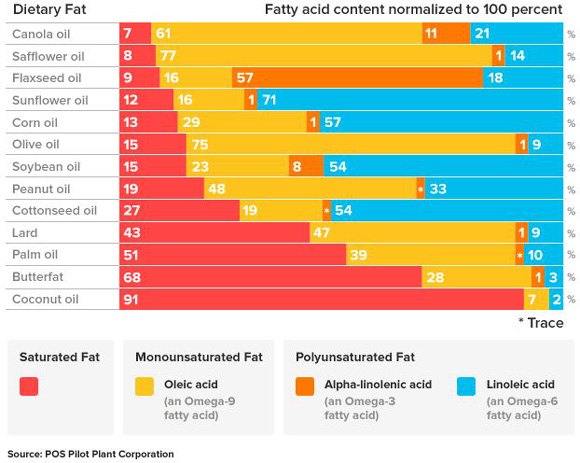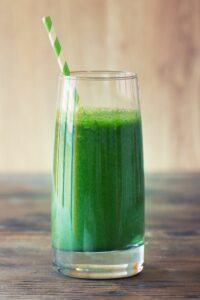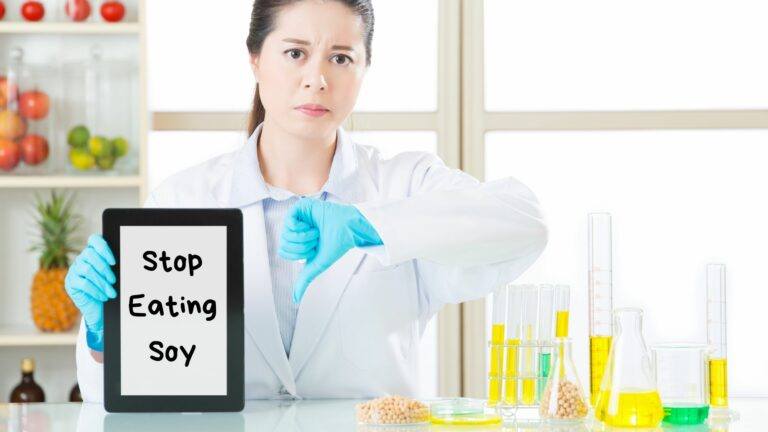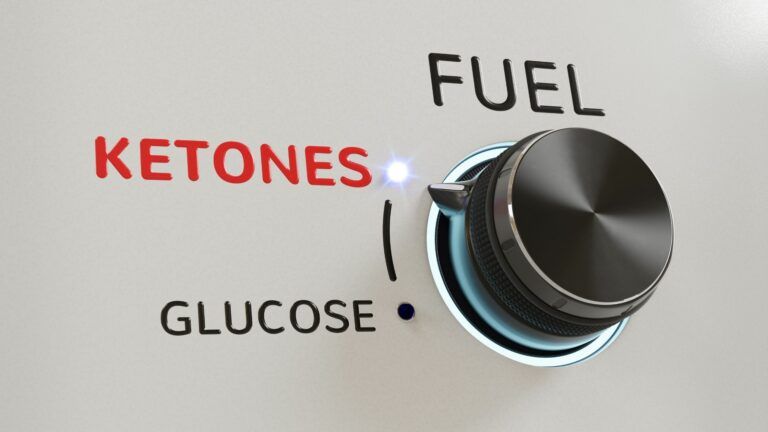Is Vegan Keto Possible? 3 Things You Must Consider
While meat, eggs, and dairy are commonly considered staples of the ketogenic diet, it is important to remember that keto, at it’s core, is about macronutrient ratios and supporting ketosis. It is therefore very possible to achieve success following a plant-based or vegan keto lifestyle, as long as you take into account the three things outlined below.
Plant-Based Or Vegan Keto
As with any type of keto diet, getting adequate amounts of fats, proteins, and nutrients is essential, however, since many plant-based foods are high in carbohydrates, it can be particularly challenging to do vegan keto properly.
To help you on your vegan keto journey, here are the 3 things you should consider:
1) Consuming the Proper Ratio of Omega-3 to Omega-6 Fatty Acids
Although there are several plant-based sources of fat such as nuts, avocados, coconuts, and vegetable oils, it can be challenging to maintain the proper ratio of omega-6 to omega-3 fats when animal sources, particularly fish, are excluded.
Omega-6s and Omega-3s are both polyunsaturated fats that are essential for proper health, however, omega-6s are largely pro-inflammatory while omega-3s are anti-inflammatory, and therefore balancing the two is essential.
Research has confirmed that preindustrial populations consumed somewhere between a 4:1 and 1:4 ratio of omega-6s to omega-3s while today’s Standard American Diet commonly results in a 20:1 ratio. Vegan diets can potentially push this ratio even further out of balance if not done correctly.
Types of Omega-3s
Not all omega-3 fatty acids are created equal. Of the 11 types of omega-3s, the 3 most important are alpha-linoleic acid (ALA), eicosapentaenoic acid (EPA) and docosahexoenoic acid (DHA).
ALA is mostly found in plant foods, and is the most common omega-3 fatty acid in most diets, however it must be converted into EPA or DHA before it can be used in the body for anything other than energy.
This conversion process is highly inefficient, which is why those following vegan or vegetarian diets are often lacking in EPA and DHA.
EPA is essential for numerous physiological processes in the body, and for reducing inflammation, while DHA is necessary for proper brain development, and is an important structural component of your skin and the retinas in you eyes.
EPA and DHA are often referred to as “the marine omega-3s” because they are mostly found in fatty fish, seaweed and algae. Seaweed and algae should therefore be consumed regularly or potentially supplemented in order to get adequate amounts of EPA and DHA while following a vegan keto diet.
Plant-Based Sources Of ALA
- Chia seeds
- Hemp seeds
- Flax seeds
- Walnuts
- Edamame (not recommended see why here)
- Kidney beans (too high in carbs for keto)
Plant-Based Sources of EPA & DHA
- Nori (the seaweed sheets used in sushi rolls)
- Seaweed snacks
- Chlorella
- Spirulina
Best Vegan Omega-3 Supplements
Consuming a quality algae oil supplement is a great way to ensure you are getting enough omega-3s, even if you are following traditional keto and consuming fish.
- Sports Research Vegan Omega-3 softgels contain the highest concentration of DHA & EPA per serving of any other algae based supplement, and is one of the only softgel options we could find that did not contain carrageenan.
- Natures Way NutraVege Omega-3 Plant Based Liquid is the most budget friendly option for those that don’t mind the taste. This product is also carrageenan-free
Foods High in Omega-6s
Increasing your intake of omega-3s is only part of the equation, you must also reduce your consumption of omega-6s. The best way to do this is to avoid processed seed and vegetable oils, as well as the products that contain them.
In the chart below the amount of omega-6 fatty acids present in common fats and oils is highlighted in blue.

As you can see from the chart, coconut oil, palm oil (preferably non-GMO sustainably sourced only), and olive oil are relatively low in omega-6s and will be your best options on a vegan keto diet. Coconut oil and palm oil can be used for high heat cooking, while olive oil is best used cold. Check out our healthiest cooking oils chart here for more details.
For some reason avocado oil is not included in this chart, or any other charts we attempted to source. Perhaps because as an oil it is relatively new or simply just not as common. Avocado oil has a similar fatty acid profile as olive oil. It contains approximately 20% saturated fat, 70% monosaturated fat, and 10% polyunsaturated fat (9% omega-6, 1% omega-3) and is therefore another Ok option.
As a side note, a recent study in the Journal of Food Control exposed several issues associated with the freshness and purity of several avocado oil products. Of the 22 domestic and imported avocado oil samples tested, only two brands were found to be pure and still fresh by the expiration date: Chosen Foods 100% Pure Avocado Oil, and Marianne’s Avocado Oil.
QUICK RECAP – It is important to maintain a good balance of omega-3 to omega-6 fatty acids. Seeds and nuts are great sources of ALA, but since very little is converted to EPA or DHA, consuming adequate amounts of seaweed and algae will be beneficial. Avoiding foods high in omega-6s is also key.
2) Getting Enough Complete Protein
Ketones have an anticatabolic effect, and the keto diet as a whole is protein sparing which means you can get away with consuming less protein, even if your goal is to build muscle. It is generally recommended that a person following the keto diet consume between 0.4 to 0.7 grams of protein per pound of body weight. As an example, a person weighing 180lbs should consume between 72 to 126 grams of protein daily.
Proteins are made of 22 amino acids, 9 of which are considered essential and must be consumed, while 13 can be created by our bodies. A protein is generally considered ‘complete’ when it contains all 9 essential amino acids in somewhat equal amounts.
Although there are a few plant-based foods that contain all 9 essential amino acids, usually one or more of these amino acids are only present in trace amounts. Consuming a blend of protein sources is therefore generally recommended.
Many plant-based protein sources, such as brown rice, soybeans, wheat, or lentils are high in carbohydrates, making it difficult to consume enough protein while keeping carbs in check. For optimal health we also recommend avoiding soy and gluten, which further limits the options available.
Even with these restrictions, there are several great plant-based protein sources including pea, hemp, chia, spirulina, and amaranth that can be combined to meet all of your protein needs.
Beyond Meat offers low carb pea protein based meat substitutes for ground beef, burgers, meatballs, sausage links and patties, and is available in several grocery stores or online directly from beyondmeat.com, Amazon, Instacart, or Fresh Direct.
Sophie’s Kitchen offers a low carb pea protein based tuna, and Noble Plate has created a plant-based meat crumble that can be easily added to a variety of dishes.
Unfortunately, while Nobel Plate’s meat crumble contains only pea protein, Beyond Meat and Sophie’s Kitchen vegan meat substitutes contain several ingredients including unhealthy vegetable oils and fillers.
We were also unable to find a meat substitute that contained a blend of our top recommended vegetable protein sources, and therefore we would suggest supplementing with a plant-based protein isolate powder of some type.
Our top two favorites are Plant Fusion Complete Protein and SUNWARRIOR Protein Warrior Blend (also available at Amazon).
Vegan Keto Protein Smoothie
While following a 2,000 calorie keto diet, one vegan protein blend smoothie can provide more than half the daily recommended protein, along with some healthy omega-3 fatty acids.
Ingredients
- 16-20oz water
- 2 scoops Plant Fusion Complete Protein (vanilla)
- 1tsp chlorella
- 1tsp spirulina
- 1tbsp ground chia
- 1/4 cup mixed berries
Calories 240, Protein 57.5g, Fat 9g, Carbs 14, Fiber 8.25, Net-Carbs 5.75g

QUICK RECAP – Blending a variety of foods is generally required in order to get enough quality protein while following a vegan keto diet. Pea, hemp, chia, spirulina and amaranth are the best low-carb plant-based sources of protein, and supplementing with a good vegan protein isolate is a great way to get enough protein without consuming unhealthy oils and fillers.
3) Obtaining All of the Necessary Nutrients
In addition to long-chain omega-3 fatty acids (EPA & DHA), there are 6 nutrients that can be difficult to obtain adequate amounts of when following a plant based diet, and even more so when attempting to keep carbohydrates to a minimum.
1) Vitamin B12
Vitamin B12 plays a crucial role in the health of your nervous system and also supports protein synthesis, and the formation of oxygen-transporting red blood cells.
While there are some plant-based foods that contain vitamin B12 such as unwashed organic produce, mushrooms grown in B12 rich soils, nori, spirulina, chlorella and nutritional yeast, vegetarians and vegans tend to be at higher risk of deficiency.
Some foods, such as certain plant milks and nutritional yeast, may be fortified with vitamin B12, however to get adequate amounts when following a plant-based diet, supplementation is strongly encouraged.
2) Vitamin D
Vitamin D is a fat-soluble vitamin that enhances the absorption of calcium and phosphorous. It also supports the immune system, mood, memory, and muscle recovery.
Very few foods contain vitamin D naturally, and although sunlight exposure supports the creation of vitamin D in our bodies, deficiency is common in both vegans and omnivores alike.
Again, some foods are fortified with vitamin D, however supplementation is still generally recommended. I personally take a vitamin D3 + K2 supplement daily.
3) Iron
Iron is needed for energy metabolism, to make new DNA and red blood cells, and supports the transport of oxygen in the blood.
Iron occurs in two forms, heme (found only in animal products) and non-heme (occurs in plants). Plant sourced iron is not as easily absorbed as animal sourced iron, requiring vegans and vegetarians to consume higher amounts of iron overall.
Iron is present in several keto friendly plant foods including cruciferous vegetables, green beans, peas, nuts, and seeds. Cooking with cast iron pots and pans, avoiding tea or coffee with meals, and consuming iron-rich foods with sources of vitamin C can help boost absorption.
Getting too much iron can do more harm than good, and the best way to determine if supplements are necessary is to have your hemoglobin and ferritin checked by your health practitioner.
4) Calcium
Calcium is necessary for good bone and teeth health, and the daily requirements generally increase with age.
Bok choy, kale, mustard greens, turnip greens, broccoli, and fortified plant milks are good sources of calcium when following a vegan keto lifestyle, however several studies have shown that vegans often do not get enough calcium.
If the foods mentioned above aren’t consumed regularly, supplementation may be helpful.
5) Zinc
A healthy metabolism and immune system relies heavily on zinc, and it is also necessary for cellular repair.
Low-carb plant-based sources of zinc include nuts, seeds, and some legumes, however phytates present in some of these foods can interfere with zinc absorption. Soaking these foods overnight can reduce phytates, and consuming these along with protein can help boost absorption.
If you decide to supplement zinc, chelated forms of zinc gluconate, zinc picolinate, or zinc citrate are the most bioavailalbe sources.
6) Iodine
Your thyroid controls your metabolism, and getting enough iodine is crucial for proper thyroid function.
Iodine levels in plant foods depend on the content present in the soil, and the only vegan foods considered to be consistently high in iodine are seaweed and iodized salt. If you aren’t consuming seaweed or iodized salt several times per week, supplementation may be beneficial.
QUICK RECAP – Vitamin B12, vitamin D, iron, calcium, zinc and iodine are 6 nutrients that can be particularly difficult to get enough of while following a plant-based diet, and even more so when limiting carbs. Taking a whole food multivitamin daily is a convenient way to ensure you are getting everything you need.
Are you doing plant-based or vegan keto? Have you found this information helpful? Do you have any advise for those thinking about starting a vegan keto diet? Please consider sharing your experience by commenting below in order to help others living a fit keto lifestyle.
Thank you for visiting LiveFitKeto.com. Check back often for new content or subscribe to our newsletter to receive updates on new articles, and if you have found this information helpful, please don’t hesitate to share.







